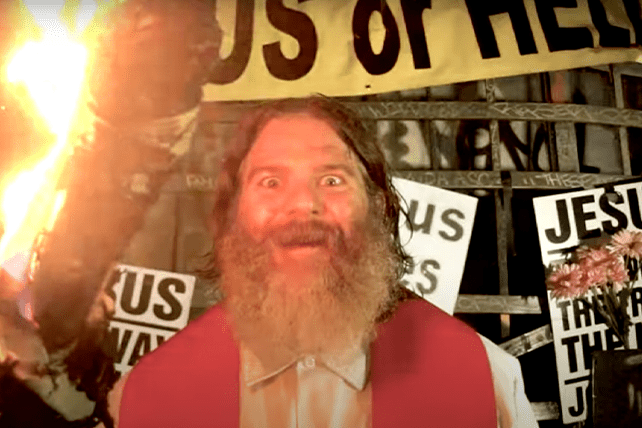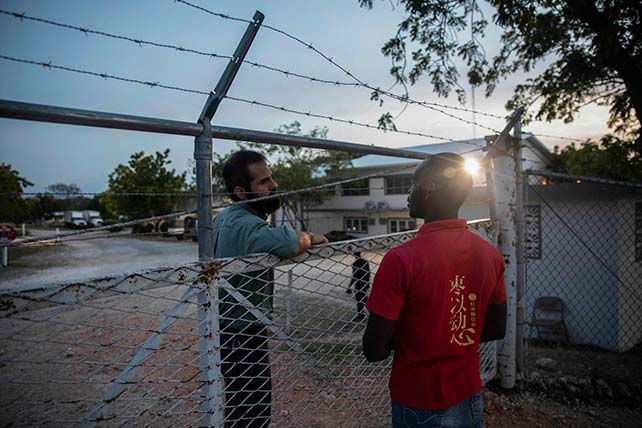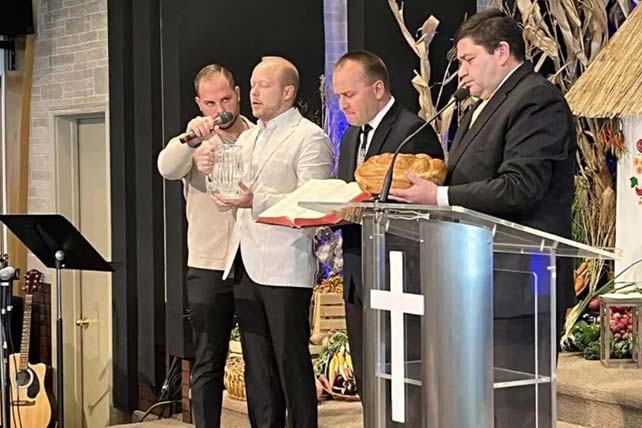VATICAN CITY (RNS) — More details concerning Cecilia Marogna, known in Italian media as “The Cardinal’s Lady,” emerged during this week’s proceedings in the Vatican financial trial of 10 individuals charged with mismanagement of the institution’s funds, including Cardinal Angelo Becciu.
Becciu stands accused of embezzlement and abuse of office while he was substitute, the Vatican equivalent of chief of staff, at the powerful Secretariat of State department between 2011 and 2018. Until 2020, the cardinal also headed the Vatican department charged with making saints.
Vatican prosecutors put a spotlight on Becciu’s relationship with Marogna, who they claim was paid over 1 million euros from the Secretariat of State. Numerous installments labeled as “contributions for humanitarian mission” were deposited in her bank account in Slovenia starting in 2018.
Marogna, 43, is among the defendants at the trial and is charged with embezzlement.
RELATED: Witnesses in Vatican Mega Trial Paint Bleak Picture of How Secretariat Managed Funds
Commissioner Stefano De Santis of the Vatican gendarmes was called as a witness by Vatican prosecutors on Wednesday (Oct. 12) and Thursday (Oct. 13). He testified that Becciu first appeared in the investigations into financial mismanagment within the Vatican in March 2020 when Slovenian authorities flagged the money transfers from the Secretariat to Marogna.
De Santis said the Vatican police force does not know how the majority of the funds sent to Marogna were used, but they claimed a portion were used for hotel stays, spa treatments and dinners. Vatican prosecutors relied on the testimony of Monsignor Alberto Perlasca, an initial key suspect in the investigations turned star witness, to suggest Becciu also paid Marogna in cash.
The commissioner projected images during his testimony showing Facebook posts by Marogna of pictures taken inside Becciu’s apartment in the Apostolic Palace with the captions “feeling at home” and “my paradise.” He also showed stills of video recordings showing Marogna leaving Becciu’s apartment with a carry-on bag after spending the night there.
According to Vatican prosecutors, the cardinal also sent conspicuous amounts of money derived from the Secretariat of State, amounting to at least $276,000 between 2015 and 2018, to Spes, a charitable organization on the Italian island of Sardinia that is run by his brother Antonino Becciu.
In September 2020, after reports that Becciu had sent money to his brother, the cardinal resigned, and Pope Francis stripped him of his Vatican roles and the rights derived from the red hat, including electing the pontiff at the next conclave.
RELATED: US Catholic Bishops’ Report to the Vatican Shows a Church Split by Politics
On Oct. 3, 2020, De Santis said, he and the head of the Vatican gendarmes, Gianluca Gauzzi Broccoletti, met with Becciu in his apartment. De Santis said they confronted the cardinal about Marogna and warned him the money she was given was not being used as intended.
“The cardinal, hands in his hair, asked us not to let the name of Cecilia Marogna emerge because it would have caused great damage to him and his family,” De Santis testified, adding that Becciu offered to pay Marogna’s expenses out of pocket.
In a spontaneous testimony during the hearing, Becciu said the gendarmes had asked that that meeting remain a secret and expressed surprise it was being addressed at the trial. “It’s true, I put my hands in my hair when they spoke to me about Mrs. Marogna,” he said, adding that his main concern was for the exposure of her role in an operation to release a kidnapped nun covered by the pontifical secret. Becciu also said he offered to pay for her expenses “because if the money was mismanaged, it’s my fault.”
“I procured the money,” the cardinal said, “they were given to the lady because she was charged with leading an operation that only the Holy Father and I were aware of.” While documents show Marogna offered her services as an intelligence officer to Vatican gendarmes in 2016, De Santis said she never fulfilled such a role.
In March 2022, Pope Francis released Becciu from keeping the pontifical secret in relation to Marogna.
Becciu’s defense lawyers pushed back against the accusations when cross-interrogating De Santis, citing court documents they say prove the pope was aware of and approved the payments to Marogna.
The cardinal’s defense team stated that Marogna continued to be paid with the Secretariat’s funds by Mons. Edgar Pena Parra, who succeeded Becciu as substitute. “We affirm once again the absolute correctness of Cardinal Becciu’s behavior,” the cardinal’s lawyers wrote in a statement on Thursday.
The charges against Becciu are made in the context of wide accusations of financial malfeasance and corruption within the Secretariat of State. At the heart of the trial is the controversial purchase of real estate in London through intermediaries that cost the Vatican well over 300 million euros originally destined for charity, Vatican prosecutors say.
This article originally appeared here.

























